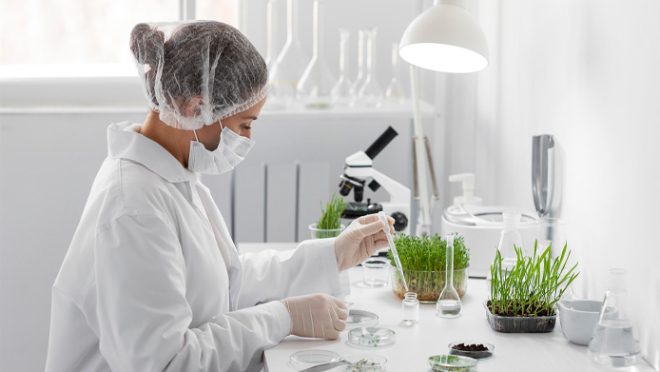Genetic Engineering and Biotechnology: A comprehensive review
Genetic Engineering and Biotechnology: A comprehensive review

“You have your mother’s eyes.” Ever wonder why Harry got Lily’s eyes or why Snape gave him a hard time for looking like James?
It’s all thanks to genes—those DNA sequences that make us who we are.
Genetic Engineering and Biotechnology (GEB) is all about working with DNA, RNA, and genes, but it’s not just science for science’s sake.
GEB uses nature’s own tricks to solve real-world problems, from health to food to the environment, turning what nature does best into ways to make life better for all of us.
Why Genetic Engineering and Biotechnology?
GEB is about using living organisms to create solutions that improve our lives, whether it’s through medical advances, sustainable agriculture, or environmental conservation. Genetic Engineering takes things further by allowing us to alter the DNA of organisms, making crops more resilient, creating new therapies, and even transforming industrial processes.
Where can you study GEB in Bangladesh?
In Bangladesh, GEB or related fields are offered at the undergraduate level in public universities like the University of Dhaka, Bangladesh Agricultural University, University of Rajshahi, Jahangirnagar University, Shahjalal University of Science and Technology, Noakhali Science and Technology University, Khulna University, Islamic University, Jessore University of Science and Technology, and some other universities of General, Science & Technology (GST) universities.
On the other hand, private universities like North South University, BRAC University, East West University, University of Science and Technology Chittagong, Ahsanullah University of Science and Technology, Independent University Bangladesh, and Daffodil International University primarily offer postgraduate programmes. So, whether you’re interested in public or private institutions, you have strong options to explore.
Admission tests for public universities
Admission to public universities for GEB programmes is difficult, but the application process is straightforward.
You just need a solid grasp of science-subjects, particularly physics, chemistry, and biology. Certain universities may also require a strong mathematical foundation.
The admission tests will cover these subjects, so it’s essential to build a solid foundation in these areas if you aim to get into renowned programmes at the University of Dhaka, Bangladesh Agricultural University, or similar institutions.
What will you study?
Once you’re in, the curriculum is a mix of foundational sciences and specialised courses. You’ll dive deep into Molecular Biology, Biochemistry, Genetics, Immunology, Cell signalling, and Bioinformatics, with plenty of lab work to get hands-on experience.
“It’s not just about textbook knowledge; it’s about getting in the lab and doing real experiments, solving real problems,” says Ayesha, a 4th-year GEB student at the University of Dhaka. You’ll learn about the latest gene-editing techniques, explore microbial biotechnology, and even tackle the ethical considerations around genetic manipulation.
What’s the future like?
A degree in GEB opens up a world of possibilities, both locally and internationally. Biotech graduates in Bangladesh can work for government agencies, pharmaceutical corporations, agricultural biotech companies, and research institutes.
Potential career paths include research scientist, bioprocess engineer, or lab technician. organisations such as Square Pharmaceuticals and Incepta are constantly seeking qualified candidates.
There is a huge demand for biotechnology specialists worldwide. Many research institutes and corporations such as Pfizer, Monsanto, and GlaxoSmithKline provide stimulating job options where you might work on creating novel medications, genetically modified crops, or sustainable biofuels. You’ll find job opportunities in healthcare, agriculture, environmental science, and even forensics.
Higher studies and research opportunities
If you’re looking to specialise further, the sky’s the limit. You can pursue master’s or doctoral studies in specific GEB fields, such as environmental biotechnology, sustainable agriculture, or cancer research after earning your undergraduate degree.
The advanced degrees offered by prestigious colleges around the world, including those in the US, UK, and Australia, open up even more opportunities.
Additionally, you can participate in cutting-edge initiatives right here in Bangladesh through research opportunities provided by organisations such as the Bangladesh Council of Scientific and Industrial Research (BCSIR).
There is more to GEB than just test tubes and labs. It’s about figuring out how to enhance lives, save the environment, and leave a lasting impression. If you have a strong desire to truly impact people, this might be the starting point of your career.


